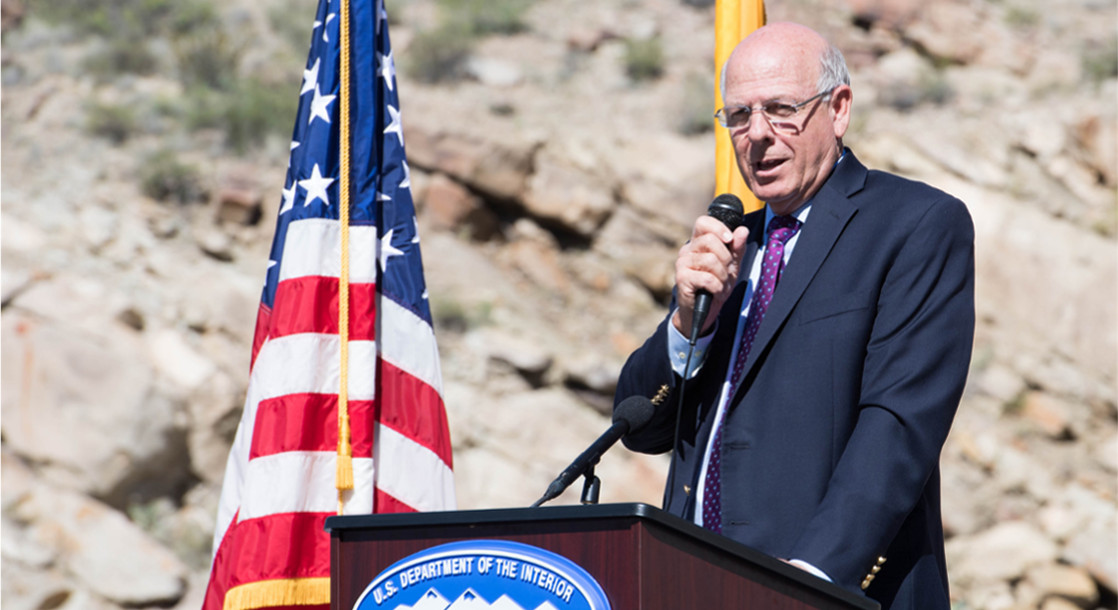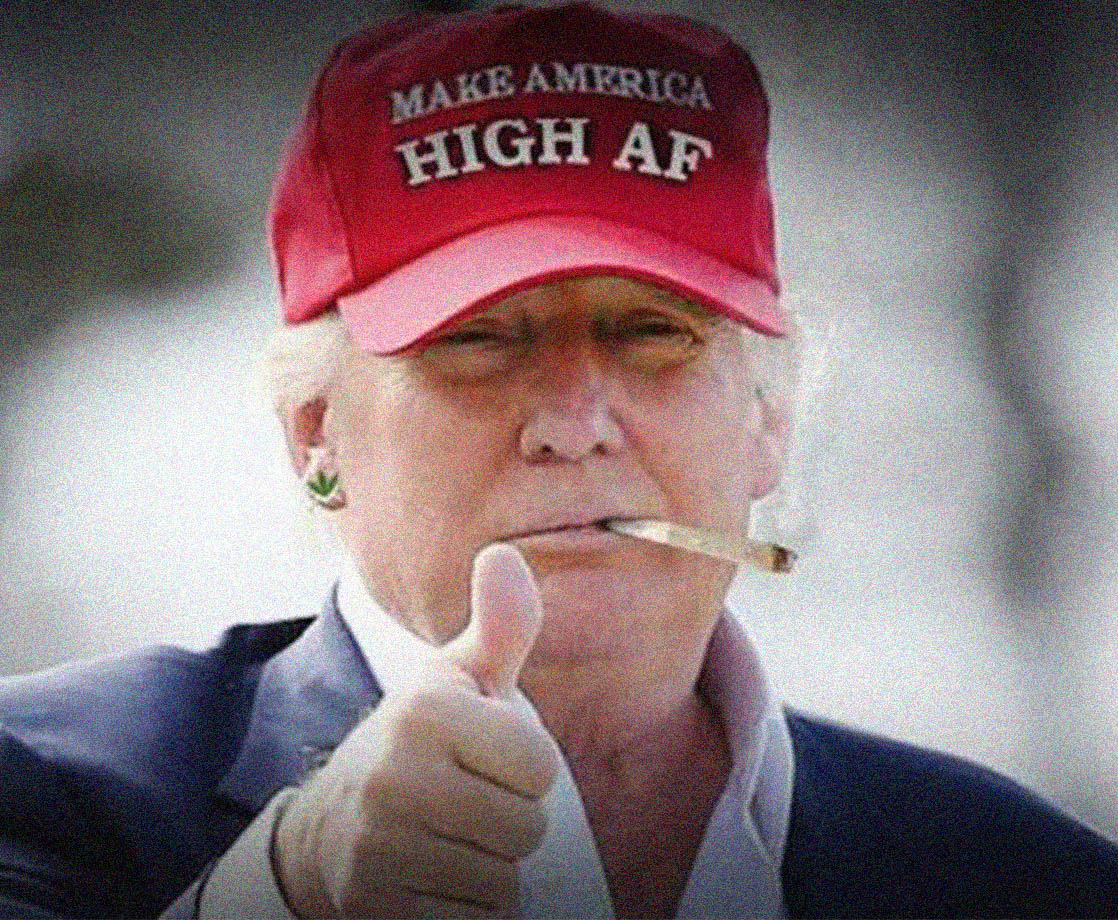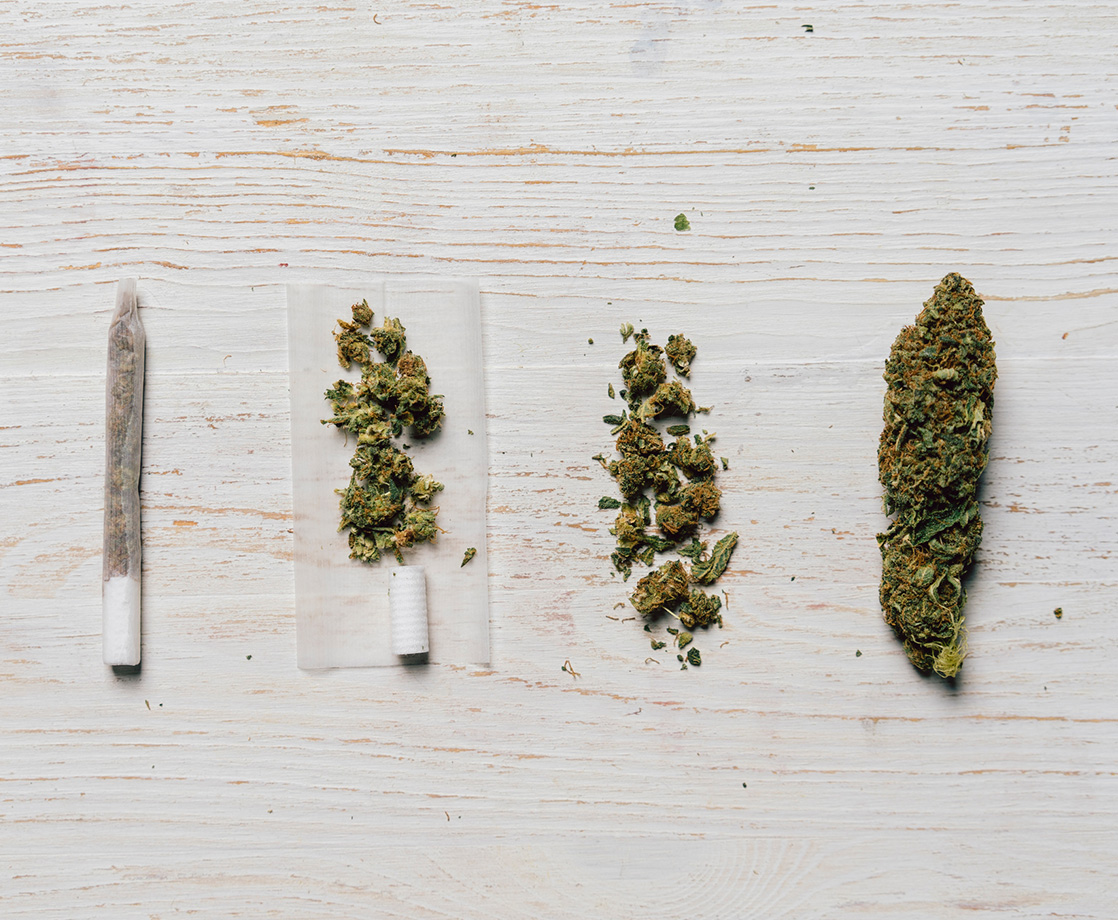Photo via U.S. Bureau of Reclamation
In a statement last week, Republican Congressman Steve Pearce of New Mexico — a candidate in the state’s current race for governor — suggested that relatively poor states could not afford to legalize marijuana. "I do not see how in combating poverty you can put one more obstacle in front of people who are struggling to get out of poverty," he said, "so I don't see where I would support recreational marijuana."
He added that wealthier states, such as Colorado, could more easily handle the alleged detriment of legal weed. "Colorado has deeper pockets to rely on," he said. "[New Mexico is] at the bottom of everything — and to say that we want to make one more [obstacle] for people who are just trying to get themselves on their feet and get back in the workforce and work their way out, I just don’t see how it fits. I don’t see how it fits that we’re going to deal with addiction and yet we’re going to people, ‘This one is OK.’”
Keeley Christensen, Pearce's press secretary, says the congressman's message isn't so simple; to reduce it to such, she says, would be a "deliberate distortion of his words." Instead, Pearce meant that wealthier states like Colorado have more resources "to pay for more drug addiction, more jails, and more law enforcement," says Christensen. "They have their right to spend their tax money mitigating the destructive effects of drug addiction how they chose. The Congressman believes New Mexico would be wiser spending its money on creating jobs, hope, and opportunity for everyone."
That said, the legal cannabis industry is projected to create more jobs than the manufacturing sector by 2020. And if weed were legal, New Mexico wouldn't need to "pay for more jails," or rather pay to incarcerate nonviolent drug offenders. Rather, tax money from legal weed could help fund more drug education and addiction treatment. “Legalizing marijuana in New Mexico would result in greater economic justice,” says Emily Kaltenbach, New Mexico state director for the Drug Policy Alliance. “Not only will it increase tax revenue [and] generate commerce… creating a legal, regulated market is estimated to remove $400 million in annual sales from the criminal market in the first year alone and put that money into the New Mexico economy.”
But aside from those projected economic benefits, is there any truth to the assumption that states with fewer financial resources will have a harder time with legalizing weed? "There's no obvious reason a poor state is better positioned to maintain prohibition — which costs public resources — than a rich state," says Mark Kleiman, professor of public policy at NYU Marron Institute of Urban Management, who helped Washington State develop their own cannabis regulations. But, he adds, "a poorly run state might do worse in terms of regulation."
At a glance, most of the canna-legal states hail from the top-half of the country's GDP/capita distribution — but that also happens to largely be the blue and liberal half, so it's unclear which factors specifically are involved, Kleiman points out.
"We're still so early in legalization that I don't think what we've seen to date is a good indicator of the long-run," says Jonathan Caulkins, professor of operations research and public policy at Carnegie Mellon University, who frequently publishes studies on cannabis policy. With prices falling and the industry consolidating, Caulkins says, cannabis markets haven't reached an equilibrium yet, and with federal illegality taken into account, it's too soon to make blanket statements about industry trends and how they intersect with the greater economic context or other trends from state to state.
But, he adds, once some states have legalized, that undermines the benefits of prohibition elsewhere, partly because cannabis can be relatively easy to smuggle across state lines, arguably making maintaining prohibition more expensive. "So we should expect most states to legalize after there is national legalization, he says. "That is, although some states may remain ‘dry,’ I think most will be wet within ten or so years after national legalization."
The eventual decline of federal prohibition (fingers crossed) will also lower the production costs of cannabis overall, Caulkins surmises, which would give poorer states a more competitive advantage. "So a poor state might well decide to offer zero taxes and very little regulation in order to woo the industry away from states like California and Colorado," he says. "Unless foreign suppliers with even lower labor costs displace current production modes entirely to offshore locations, leaving only mechanized “industrial” forms of production in the United States."
Nonetheless, despite Pearce's economic position against legal marijuana, some New Mexico lawmakers such as state Representative Javier Martinez believe that legalization could not only alleviate some of the social ills of the drug war, but also help put a dent in New Mexico's own opioid epidemic — saving lives and perhaps even money on more serious rehabilitation programs.
However, legalization in the state cannot succeed through the legislature if the governor were to block a bill. And while Pearce's statement may very well be part and parcel to campaign trail rhetoric, it may also appeal to the nearly 40 percent of state residents against legal cannabis.











